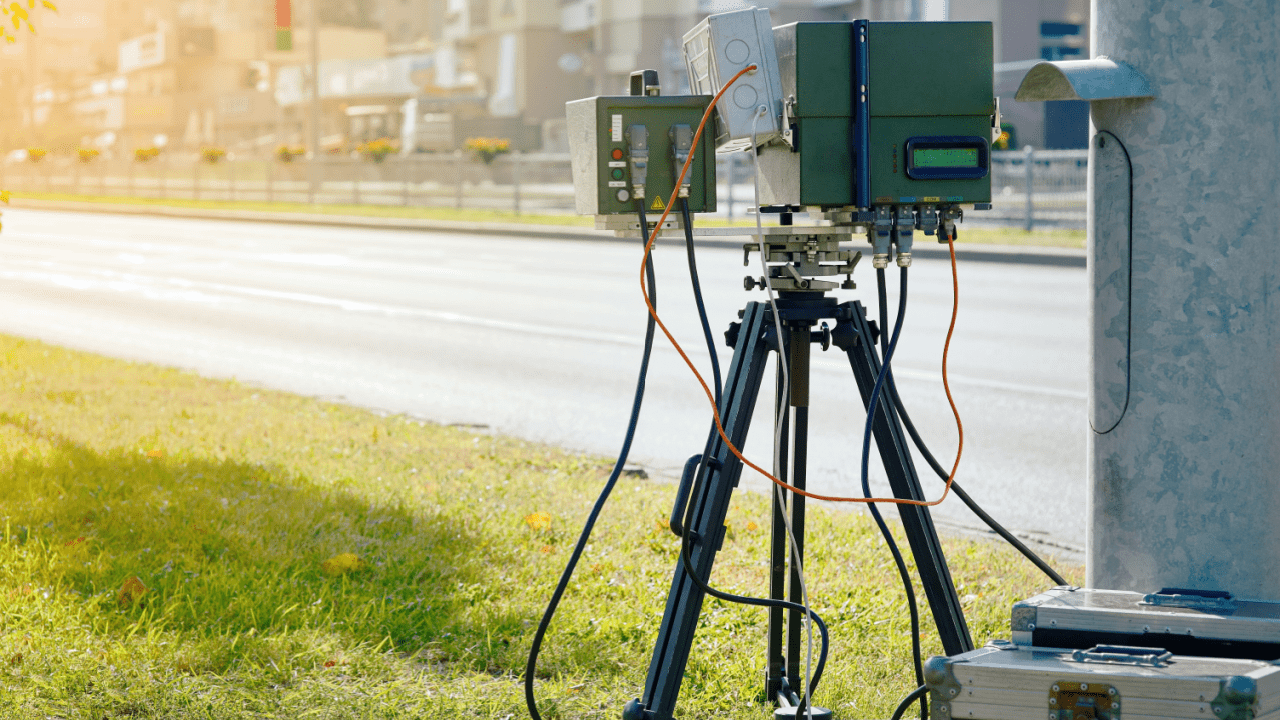Complete the form to schedule a free consultation with a traffic lawyer
How Do Cops Prove You Were Speeding in Court? What Evidence They Really Use

The Common Methods: How Do Cops Prove You Were Speeding in Court?
How do cops prove you were speeding in court is a question many drivers ask after receiving a ticket. While it may seem like a police officer’s word is final, speeding charges must be backed by reliable evidence. The burden of proof lies with the officer, and drivers have the right to challenge how that proof is gathered and presented.
The Main Tools Cops Use to Prove Speeding
Police rely on a few specific methods to show that a driver was speeding. Each has strengths and weaknesses that may be brought up in court.
Radar Guns
Radar is one of the most common tools used. It works by bouncing a signal off your vehicle and measuring the change in frequency to calculate speed. In court, the officer will usually testify about:
- The type of radar unit used
- Their certification to operate it
- Recent calibration records
- The environment in which the reading was taken
Radar readings can be challenged if there’s evidence of poor maintenance, user error, or interference from nearby vehicles.
Lidar (Laser Speed Detection)
Lidar is more precise than radar and uses laser beams to measure distance over time. Officers usually target a specific part of the vehicle (like the license plate). Still, you can raise doubts in court by asking about:
- Weather conditions (fog, rain, etc.)
- The officer’s line of sight
- Calibration logs and training
Pacing
Pacing involves the officer following your car and using their own speedometer to match your speed over a set distance. To prove this method in court, they must show:
- Their speedometer was recently calibrated
- They maintained a constant distance behind you
- The pacing occurred over a reasonable and clear stretch of road
Errors can occur if traffic, hills, or curves interfere with the pacing process.
Aerial or Aircraft Enforcement
Some jurisdictions use aircraft to monitor speeders over marked road segments. A spotter in the air times how long a car takes to pass between two ground markers and relays the speed to an officer on the road.
This method may be challenged by questioning the accuracy of timing, communication, or pilot training.
What Officers Need to Present in Court
To successfully prove you were speeding, officers must bring more than just a claim. Here’s what’s typically expected:
- A copy of the citation and notes from the stop
- Details of the method used to record your speed
- Proof of device calibration
- Officer’s training or certification records
- Any dashcam, bodycam, or aerial video (if available)
Without proper documentation or firsthand details, the court may find the evidence insufficient.
How to Challenge Speeding Evidence
Just because an officer claims you were speeding doesn’t mean the case is closed. You can contest the accuracy of the method, the conditions during the stop, or inconsistencies in the officer’s account.
Common defense strategies include:
- Requesting maintenance or calibration records
- Questioning the officer’s line of sight or timing
- Arguing that another vehicle may have caused the radar/lidar reading
- Presenting dashcam or GPS evidence showing your speed
Hiring a traffic attorney can make these defenses more effective, especially when dealing with complex radar or lidar readings.
How Police Prove Speeding Depends on Evidence
When it comes to how do cops prove you were speeding in court, it all comes down to the method used, the officer’s testimony, and the supporting records. Each of these can be challenged with preparation and the right strategy.
Get Help with Speeding Ticket Defense Today
At Ticket Void, we connect drivers with experienced traffic attorneys who know how to challenge the way officers try to prove speeding in court. Whether radar, pacing, or lidar was used, we can help you build a strong defense. Start your free traffic ticket attorney consultation today and protect your driving record.
Frequently Asked Questions (FAQs)
1. Do cops always show radar proof in court?
Not always. Some officers rely on written notes and testimony, but you can request calibration logs and radar evidence during discovery.
2. Can you beat a speeding ticket if the radar was off?
Yes. If the radar unit wasn’t calibrated or maintained properly, your lawyer can use that to have the ticket dismissed or reduced.
3. What happens if the officer doesn’t show up to court?
In many cases, if the officer is absent, the judge may dismiss the case unless a continuance is granted.
4. Can GPS or dashcam data be used in court?
Yes. If your device logs your speed and can verify you were not speeding, it may be submitted as evidence.
5. Is pacing a reliable method in court?
It depends. If pacing is done properly and over a reasonable distance, it can hold up in court—but it’s also open to challenge.
Key Takeaways
- Police use radar, lidar, pacing, and aircraft to prove speeding in court.
- Officers must provide testimony, documentation, and calibration records.
- Each method of proof has flaws that can be legally challenged.
- You have the right to request evidence and cross-examine claims.
- A traffic lawyer can improve your chances of beating a speeding charge.
Recent Posts
-
How Long Do Tickets Stay on Your Record in North Dakota?
-
How Long Do Tickets Stay on Your Driving Record in Oregon: Oregon Record Duration
-
How Long Do Violations Stay on CDL Records?
-
Violation Records Explained: How Long Does a Commercial Speeding Ticket Stay on Your Record?
-
CDL Ticket Duration: Timeline Guide for Commercial Driver Violations and Record Impact
